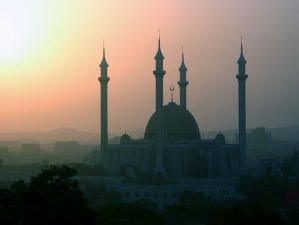
Fulani herdsmen on Sunday (April 28) killed two Christians in one area of Benue state after killing five Christians the previous day in another area, sources said.
The killings on Sunday in Agatu County were the latest of 30 slayings in the same area since January, sources said.
In Agatu County, herdsmen attacked the predominantly Christian villages of Egba and Ogbaulu at about 6 p.m., killing Agness Salahu, 28, and 25-year-old Ademu Efugoga, said area resident Napoleon Otache.
The killings followed attacks on four villages in Agatu County on March 21 that resulted in the slaughter of 15 Christians, said Joseph Ngbede, a member of the Agatu Local Government Council. The predominantly Christian villages of Atakpa, Oshigbudu, Okpagabi and Ogbaulu were raided.
Those villages and five others – Ogwumogbo, Ikpele, Okokolo, Ejima and Ogboju – have been attacked since January, Ngbede said.
Godwin Edoh, a legislator representing the Agatu area in the Benue State House of Assembly, said herdsmen on Jan. 31 killed 15 Christians in the villages of Ogwumogbo, Ikpele, Okokolo, Ejima and Ogboju. Area resident Mike Inalegwu, a former civil commissioner in the Benue state government, confirmed the Jan. 31 attack.
Catherine Anene, a local police spokesperson, said the command had received reports of attacks in those communities.
“Our personnel have been deployed to the affected communities, and efforts are being made to end these disturbances,” Anene said.
Attacks on Saturday
In Benue state’s Gwer East County, Fulani herdsmen on Saturday (April 27) raided predominantly Christian Mbamar-Mbasombo village, killing five Christians and wounding another, sources said.
The previous month, residents said, herdsmen killed 18 Christians in the area.
In the attack on Saturday, about 40 herdsmen attacked Mbamar-Mbasombo at about 10 p.m., resulting in the death of the five Christians, resident Felix Kunde told Morning Star News.
“One other Christian was shot and wounded and is currently battling for his life in an Intensive Care Unit of a hospital,” Kunde said.
Comfort Agbo, chair of the Gwer East Local Government Council, said this was not the first time the area has been attacked.
“There have been series of such attacks carried out by armed herdsmen against our people,” Agbo said.
On March 7, 18 Christians were slaughtered in 13 predominantly Christian communities of Gwer East by armed herdsmen, said resident Tersoo Adagher.
“During these attacks, which occurred at about 7 p.m., 50 houses belonging to Christians were burned down,” Adagher said.
The villages attacked were Wa-ndoo, Tse-Agernor, Tse-Najime, Tse-Wandor, Wandor Market Square, Tse-Ate, Tse-Anyol, Tse-Abagi, Tse-Ifian, Tse-Ukombor, Tse-Girgi Akwaya, Tse-Tion Ukpa, and Tse-Abuur, Adagher said.
Among Christians slain were Peter Tion, Nyityo Kyoon, Iorfa Ukombor, Doopinen Awua, Tyoshaa Mkaanem, Asan Ate, Asough Ate, Terzungwe Asoo Ate, Mbatsavbun Gbatar, John Ndahagh Tyohemba, Tertsea Ukombor, Akuma Kpenge, Abume Kpenge, Igba Byuan, Ter Byuan, Terzungwe Aulugh and a small child, Adagher said.
Agbo, the chair of the Gwer East Local Government Council, confirmed the killing of the 18 Christians by armed herdsmen.
“And there’s no doubt that those responsible for the ceaseless attacks on my people are armed herdsmen,” Agbo said.
Vearumun Tarhule, an area community leader, in a press statement expressed surprise at the attacks in spite of the military and police presence.
“When will this end? How can our people sleep with their eyes closed?” Tarhule said. “With the farming season approaching, how will our people return to their farms when their properties are destroyed, and they are displaced? These are the urgent concerns that demand immediate attention and action.”
Similar attacks occurred in 2014 at Agana, Mbatsada, and on April 24, 2018, when the Rev. Joseph Gor, the Rev. Felix Tyolaha and 17 parishioners were killed during morning Mass at St. Ignatius Quasi Parish Ayar-Mbalom in Ubuluku Kindred, he said.
Police spokesperson Catherine Anene acknowledged a rise in unprovoked attacks.
“It’s a known fact that there have been rise of unprovoked attacks against the people of Gwer East Local Government Area, but the police and other security agencies are collaborating towards ending such incidents in that area,” she told Morning Star News.
Nigeria remained the deadliest place in the world to follow Christ, with 4,118 people killed for their faith from Oct. 1, 2022 to Sept. 30, 2023, according to Open Doors’ 2024 World Watch List (WWL) report. More kidnappings of Christians than in any other country also took place in Nigeria, with 3,300.
Nigeria was also the third highest country in number of attacks on churches and other Christian buildings such as hospitals, schools, and cemeteries, with 750, according to the report.
In the 2024 WWL of the countries where it is most difficult to be a Christian, Nigeria was ranked No. 6, as it was in the previous year.
Numbering in the millions across Nigeria and the Sahel, predominantly Muslim Fulani comprise hundreds of clans of many different lineages who do not hold extremist views, but some Fulani do adhere to radical Islamist ideology, the United Kingdom’s All-Party Parliamentary Group for International Freedom or Belief (APPG) noted in a 2020 report.
“They adopt a comparable strategy to Boko Haram and ISWAP and demonstrate a clear intent to target Christians and potent symbols of Christian identity,” the APPG report states.
Christian leaders in Nigeria have said they believe herdsmen attacks on Christian communities in Nigeria’s Middle Belt are inspired by their desire to forcefully take over Christians’ lands and impose Islam as desertification has made it difficult for them to sustain their herds.





